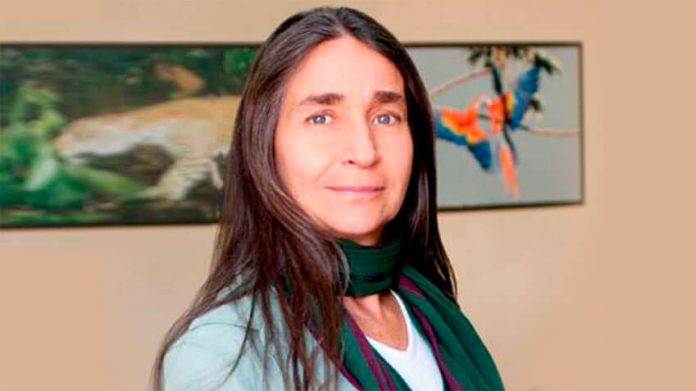A former federal environment minister has hit back at President López Obrador after he accused her of being responsible for environmental damage caused by a quarry on land near the coast in Playa del Carmen, Quintana Roo.
Julia Carabias, environment minister during former president Ernesto Zedillo’s 1994-2000 government, accused the president of endangering the safety of environmentalists via his “unjustified and frequent defamation” of many such people including herself.
At his February 1 press conference, López Obrador noted that a permit for a quarry in the Caribbean coast resort city was granted to the company Calizas Industriales del Carmen (Calica) at the end Zedillo’s six-year term.
He expressed disbelief that a permit for a quarry across 400 hectares of land “in paradise” had been granted.
“I’m being informed and I’m going to confirm that it was Julia Carabias, the environment minister and … great defender of the environment” who authorized the permit, López Obrador said.
“Just imagine granting a permit to extract construction material [limestone] … 1,000 meters from the beach, the Caribbean, the turquoise sea, one of the most beautiful areas in the world. [It was] always double talk and double standards. That is no longer permitted,” he said.
The Environment Ministry (Semarnat) said in a statement last Thursday that Fedro Carlos Guillén Rodríguez, the former head of the National Institute of Ecology – which was part of Semarnap, as the Environment Ministry was formerly known – was in fact responsible for granting the permit to Calica and did so in the “record period of 36 days.”
The ministry said that mining beneath the water table caused “serious environmental damage such as the definitive and unrecoverable loss of the subsoil, alteration of the pressure of the aquifer … [and] the risk of collapses and fracturing of the subsoil.”
It also said that the operation of the quarry affected water quality, superficial and subterranean drainage, the natural landscape and local ecosystems.
In a statement published online, Carabias said that the history of the case involving Calica and the quarry permit it was granted was “extremely complex” and that López Obrador’s version of events was a “clumsy” simplification of the facts.
The Environment Ministry’s statement contributed to the “confusion and disinformation by alleging … that the only competent authority to authorize those permits … was Semarnap and no local authority had that kind of power,” she wrote.
In a lengthy statement, Carabias noted that the Quintana Roo government in fact authorized the expansion of the quarry site across two properties known as La Adelita and Corchalito in 1996.
She also acknowledged that quarrying “is legal in our country” and that “environmental legislation has instruments to prevent environmental damage, such as the assessment of environmental impact.”
Environmental authorizations are not “unconditional or eternal permits,” she wrote.
“They’re not blank checks. Each authorization … fixes precise conditions that regulate the operation of each project in a way that the impacts on the environment are minimized,” Carabias said.
“In case of non-compliance authorities can suspend the operation or revoke authorization at any time. … Semarnap, at the time, acted in accordance with the valid legal framework and the authorization was legal,” she said, adding that the federal environmental protection agency Profepa partially shut the quarry down in 2018 due to a breach of environmental conditions.
“… With regard to the questioning of the president and the federal government about my actions at the helm of Semarnap it’s timely to say … that it’s precisely thanks to the [current] environmental legislation (which emerged and was strengthened between 1987 and 1996) that the authorization granted in 2000 is public and transparent and therefore can be the object of an informed debate that allows us to seriously evaluate environmental management,” Carabias wrote.
She said that “the unjustified and frequent defamation of many environmental defenders” by the president at his morning press conferences – “as he has done on this occasion to me” – represents a threat to “our physical safety.”
Defamed environmentalists who contribute to public programs “in very complex and unsafe areas” where the government is not present are particularly vulnerable, Carabias said.
Scores of environmental defenders have been killed in Mexico in recent years, making the country one of the world’s most dangerous for environmentalists. One of those killed since López Obrador took office in late 2018 opposed a thermal power plant in Morelos that the president supported.
In addition to launching broadsides at environmentalists, AMLO also frequently attacks sections of the press, an oratorical modus operandi that has been blamed for encouraging hostility toward – and even physical assaults on – journalists who are critical of the government.
Carabias advised the president to stop his verbal attacks on environmentalists and cease “placing at risk those of us who work for Mexico with the sole interest of defending nature and human rights.”
“I don’t have double standards, as he slandered me,” she added. “I have always acted according to my principles and within the framework of legality.”
Mexico News Daily
